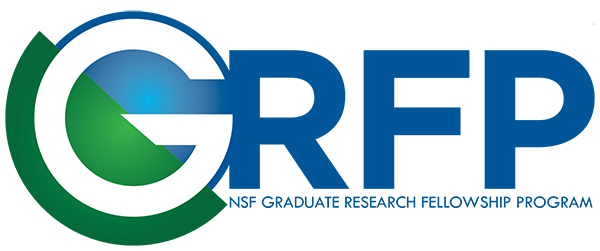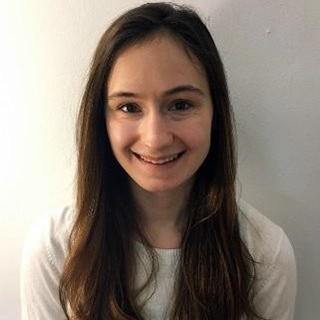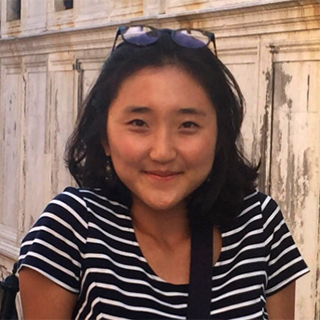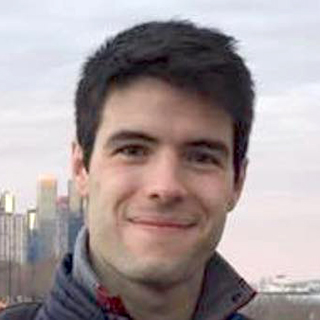 Four Allen School Ph.D. students have been recognized for exceptional research as part of the National Science Foundation’s Graduate Research Fellowship Program (GRFP). Each year, the NSF celebrates the most promising student researchers in science, technology, engineering, and mathematics from across the nation. Allen School students Terra Blevins, Matthew Johnson, Eunice Jun, and Max Willsey helped to carry on the University of Washington’s tradition of excellence in the “Computer and Information Sciences & Engineering” category as part of the 2018 competition.
Four Allen School Ph.D. students have been recognized for exceptional research as part of the National Science Foundation’s Graduate Research Fellowship Program (GRFP). Each year, the NSF celebrates the most promising student researchers in science, technology, engineering, and mathematics from across the nation. Allen School students Terra Blevins, Matthew Johnson, Eunice Jun, and Max Willsey helped to carry on the University of Washington’s tradition of excellence in the “Computer and Information Sciences & Engineering” category as part of the 2018 competition.
 Fellowship winner Terra Blevins is a first-year Ph.D. student working with professor Luke Zettlemoyer in the Allen School’s Natural Language Processing group.
Fellowship winner Terra Blevins is a first-year Ph.D. student working with professor Luke Zettlemoyer in the Allen School’s Natural Language Processing group.
Blevins’ most recent project with Zettlemoyer and postdoc Omer Levy explored whether deep recurrent neural networks (RNNs) are capable of learning low-level linguistic features such as syntax when trained on traditional NLP tasks. She and her colleagues investigated four tasks — machine translation, semantic role labeling, dependency parsing, and language modeling — and determined that RNNs are learning syntactic features even in the absence of explicit supervision. Her latest work, which is in its early stages, focuses on multilingual language modeling.
 Second-year Ph.D. student Matthew Johnson, who also won a fellowship, focuses on computer networking research. He is a member of the Allen School’s Information and Communication Technology for Development (ICTD) Lab, where he works with professor Kurtis Heimerl on projects related to the management and security of community-owned cellular networks.
Second-year Ph.D. student Matthew Johnson, who also won a fellowship, focuses on computer networking research. He is a member of the Allen School’s Information and Communication Technology for Development (ICTD) Lab, where he works with professor Kurtis Heimerl on projects related to the management and security of community-owned cellular networks.
Johnson’s current work aims to address the challenges associated with distributed management and network optimization within the context of community cellular networks. He also contributes to a project exploring the feasibility of crowdsourcing the maintenance and repair of rural cellular infrastructure by engaging members of the affected communities.
 Fellowship winner Eunice Jun is a second-year Ph.D. student who works in human-computer interaction with Allen School professor Katharina Reinecke. Her research interests span collaborative learning, citizen science, artificial intelligence, and large-scale online experimentation.
Fellowship winner Eunice Jun is a second-year Ph.D. student who works in human-computer interaction with Allen School professor Katharina Reinecke. Her research interests span collaborative learning, citizen science, artificial intelligence, and large-scale online experimentation.
Jun’s recent work has focused on gaining a better understanding of the motivation and behavior of participants in online experiments using LabintheWild, a platform for conducting large-scale experiments of user abilities and preferences. Through her research, Jun aims to promote the design of creative learning opportunities for participants while simultaneously supporting researchers in easily collecting novel kinds of data when conducting online experiments.
 Second-year Ph.D. student Max Willsey earned an honorable mention for his application of programming language techniques to problems in computer architecture and synthetic biology.
Second-year Ph.D. student Max Willsey earned an honorable mention for his application of programming language techniques to problems in computer architecture and synthetic biology.
Willsey’s recent work includes Puddle, an open-source operating system for microfluidics developed in collaboration with professor Luis Ceze and members of the Molecular Information Systems Lab. Puddle aims to make laboratory automation cheaper, more reliable, and easier to use. He also works alongside professors Ceze, Rastislav Bodik, and Alvin Cheung as part of the Sampa group applying programming language techniques to the hardware design process.
The Allen School honorees were joined by Hugh Chen of the UW Department of Statistics, who earned a fellowship for his work with Allen School and Department of Genome Sciences professor Su-In Lee on techniques for combining machine learning with big data to improve human health, and Alexander Kale, a Ph.D. student in the Information School.
NSF awarded a total of 122 fellowships and 71 honorable mentions in the “Comp/IS/Eng” category this year. The competition for NSF fellowships is always fierce; more than 12,000 applicants from across the country this year vied for 2,000 fellowships across 11 science and engineering fields. In the past five years, the NSF has recognized a total of 45 Allen School student researchers through its fellowship program.
Read the NSF announcement here and learn more about the program on the GRFP website here.
Way to go, team!

